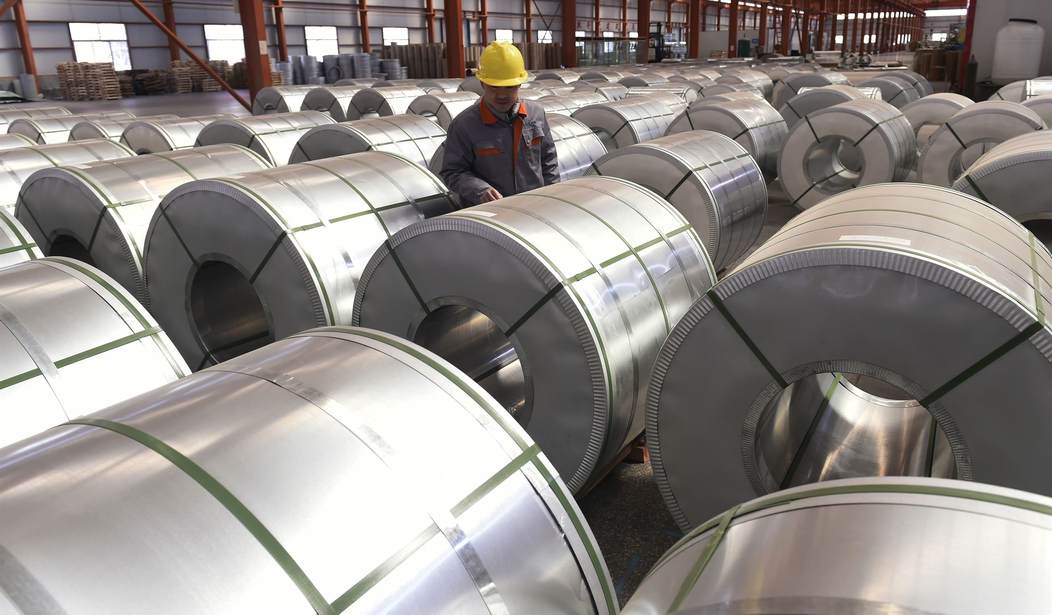Joe Biden signed an executive order that will prohibit some new U.S. investment in sensitive technologies like computer chips and quantum computing while requiring government notification for investment in other sectors. Also, some AI systems and microelectronics will be under the ban as well.
National security experts in and out of government had been urging Biden to make this move for years. It reflects the reality that China is using these new technologies to improve its conventional and strategic military assets — at the expense of the U.S.
The measure targets private equity, venture capital, joint ventures, and greenfield investments.
Biden said in a letter to Congress that he was declaring a national emergency to deal with the threat by countries like China “in sensitive technologies and products critical to the military, intelligence, surveillance or cyber-enabled capabilities.” Naturally, China didn’t take very kindly to the executive order.
Beijing said that China was “gravely concerned” about the order and that it reserves the right to take countermeasures.
The ministry also said it hopes the U.S. will respect laws of the market economy and the principle of fair competition, and refrain from “artificially hindering global economic and trade exchanges and cooperation, or set up obstacles for the recovery of the world economy”.
The Chinese foreign ministry said the country was “strongly dissatisfied” with and “resolutely opposes the U.S.’s insistence on introducing investment restrictions on China”, having also lodged solemn representations with the U.S.
China urged the U.S. to fulfill Biden’s promise of no intention to decouple from China or obstruct China’s economic development, the ministry said in a statement.
The investment ban comes at a very bad time for the Chinese Communists. They are dealing with a deflationary economy, slow growth, and a big drop in foreign investment already.
“That talk of diversification, de-risking, decoupling, disentangling—choose your ‘D-word,’ whichever one you like—it’s really baked into the minds in Washington, increasingly in Silicon Valley, and this is really being beamed right at Wall Street,” said Liza Tobin, a former National Security Council official now with the Special Competitive Studies Project.
The “D” word that matters most is “defense” — national defense. And China has had a free ride for the last two decades as it gobbled up each new advance in semiconductors and other cutting-edge tech industries. Now, it’s bellyaching about “weaponizing” tech and trade issues.
“This is deglobalization and a move to phase China out,” a foreign ministry statement said. It urged the U.S. to “stop politicizing, instrumentalizing and weaponizing tech and trade issues, immediately cancel the wrong decisions, remove the restrictions on investments in China” and improve the environment for business cooperation.
Treasury Secretary Janet Yellen tried to explain to the Chinese government during her visit last month that the measures were “narrow in scope and done for national-security purposes, not for economic advantage,” according to the Wall Street Journal.
“National security is something that we can’t compromise about and we will protect, and we will do so even if it harms our own narrow economic interests. But that when we take such actions, which do have an effect on the Chinese economy, that we will make sure that they are transparent, narrowly targeted, and well-explained,” Yellen said last month on CBS’s “Face the Nation.”
“I would point out that the Chinese also protect their own national security through export controls and other similar devices,” Yellen said.
Of course, they do. China always has to play the victim whether it’s on trade or the origins of the pandemic.
Republicans are more than a little skeptical that the executive order will deter the Chinese. Sen. Marco Rubio (R-Fla.) said the Biden administration’ plan was “almost laughable.”
“It is riddled with loopholes, explicitly ignores the dual-use nature of important technologies, and fails to include industries China’s government deems critical,” he said.
Biden may explicitly be trying to keep China’s retaliation to a minimum by making the executive order less than all-encompassing. Besides, he can always add to it later.










